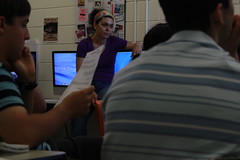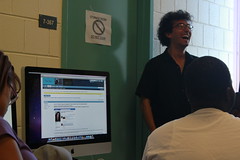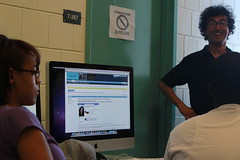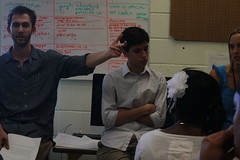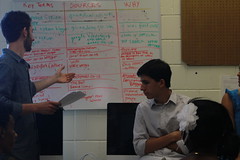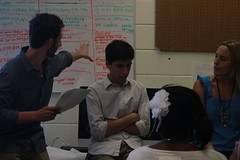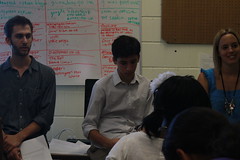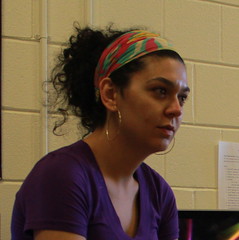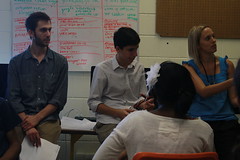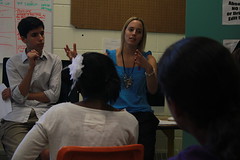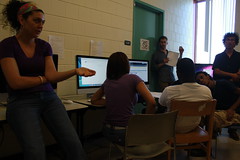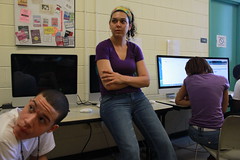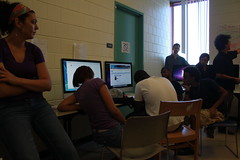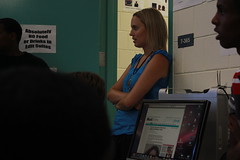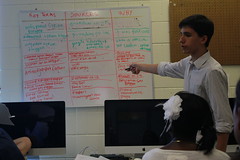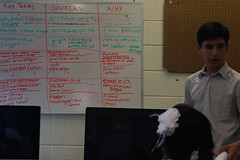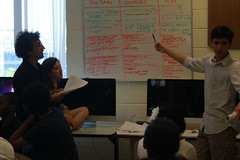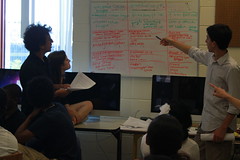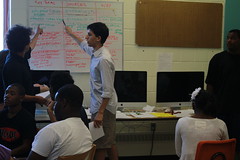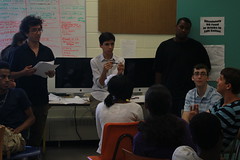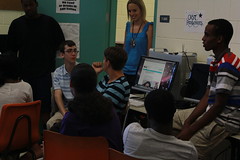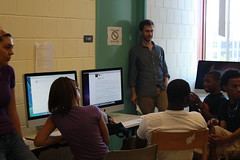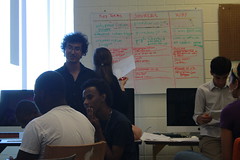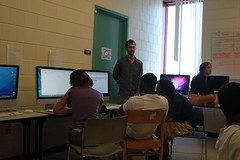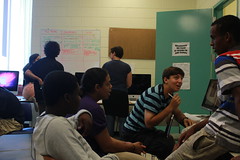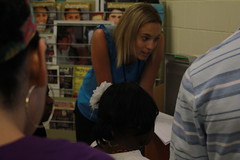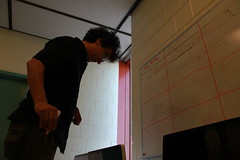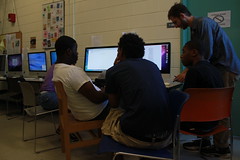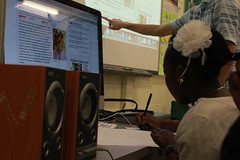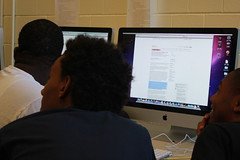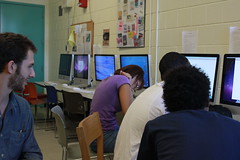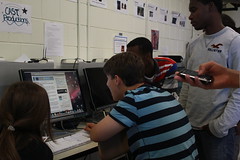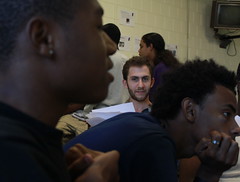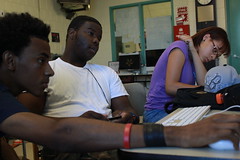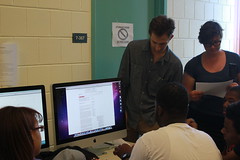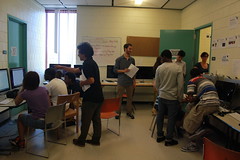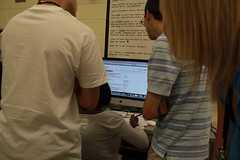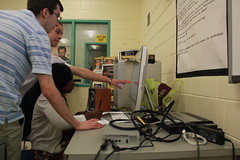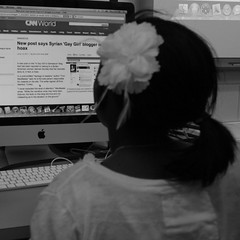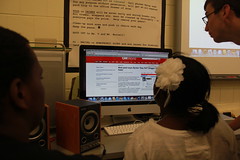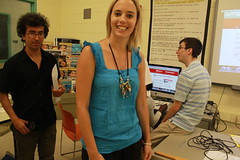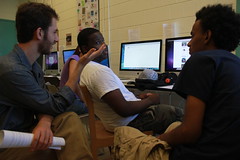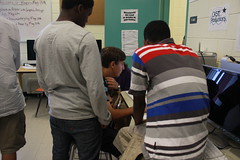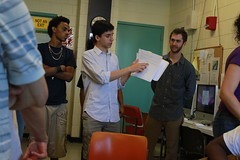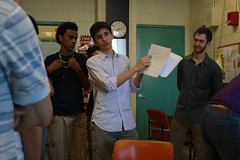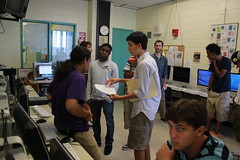The Youth and Media team has focused on prototyping and field-testing curricular modules (through workshops and in-person engagement) to support youth in activities of peer learning1 (encouraging youth to be co-teachers/learners) and to assist educators in practice. The primary goal of our curricular development has been to build modules with the following characteristics:
- Modularity: modules are learning activities that form the basis of Youth and Media workshops. They can be deployed individually or strung together in a series.
- Scalability: most modules are designed to last one hour, though they can be adapted to both longer and shorter periods. Moreover, while most modules are designed with a specific age range and skill level in mind, one of our key objectives is to draw from our initial testing and deployment experiences and tailor different versions of each module to specific audiences. For instance, the module “News Stories” may focus more on functional navigation skills with a younger audience and higher-level discussion about the media ecosystem with an older one.
- Adaptability: modules should be adaptable to formal and informal learning environments. We aim to create fun, engaging learning experiences for informal contexts such as summer camps and afterschool or not-for-credit academic programs (all of which are especially appropriate for peer learning). However, given our concern for classroom instruction and initial feedback from teachers, we are striving to design modules for formal curricular purposes as well.
- Optimization: people using the modules are encouraged to tailor language and/or specific topics to the particular interests of the learner.
1 Some of the workshops, led by Youth and Media youth ambassadors, and the underlying curricular modules serve as “proof of concept” demonstrations for how youth can successfully engage with important issues identified in youth-related research by fostering greater awareness and reflection. They also demonstrate how youth can engage their peers in the exploration of such issues. Unlike conventional learning models, which are typically premised on a one-to-many transfer of knowledge from the teacher to learners, peer teaching/learning focuses on ways that youth can engage one another in a many-to-many process as both teachers and learners. Previous research has shown, for instance, that pairs of skilled peers teaching less skilled learners out-performed pairs of adults teaching children, and that peer teaching is especially successful in tasks that require discussion of issues.
All our modules are available on the DLRP: dlrp.berkman.harvard.edu
Two central concepts that have informed the modules are information quality/news literacy and social-emotional learning/online relationships, respectively.



